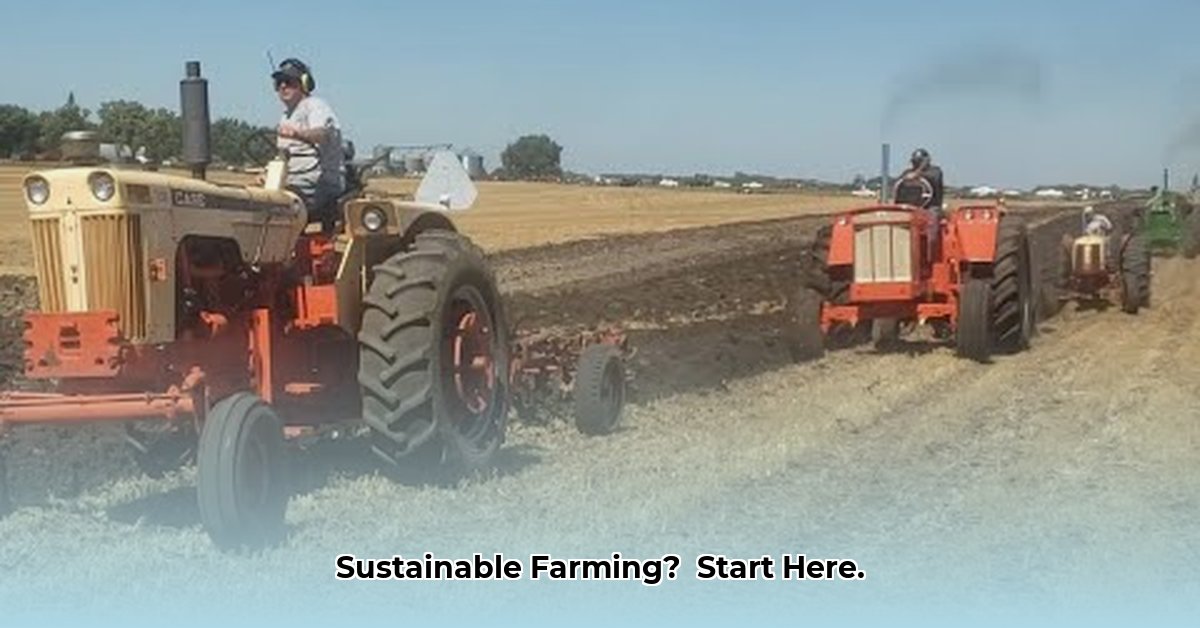
The Rise of Online Farming Communities: A Double-Edged Sword
The internet has revolutionized information sharing, particularly within the agricultural sector. "Tractor Guy 2022," and similar online influencers, exemplify this shift, showcasing the immense potential of online platforms like TikTok and YouTube for disseminating sustainable farming practices. This creates a global community of farmers, fostering collaboration and knowledge exchange. However, this accessibility comes with significant caveats. The ease with which information spreads also facilitates the rapid propagation of misinformation, posing a serious challenge to the adoption of genuinely sustainable practices. How do we ensure farmers receive reliable advice amidst the noise? This becomes crucial when considering the impact on farmer decision-making concerning crucial aspects like crop selection, soil management, and pest control. For more on electric options, check out electric tractors.
“The democratization of information is a powerful force, but it also requires a critical eye. Farmers need to be discerning consumers of online content,” says Dr. Emily Carter, Agricultural Economist at Cornell University. “We need to empower them with the tools to evaluate sources critically.”
Imagine the traditional approach to agricultural learning as a well-stocked library – reliable, but potentially slow. Online communities, conversely, represent a vast, ever-expanding marketplace, brimming with both gems and junk. This abundance necessitates a thoughtful approach to discerning trustworthy sources. One key question emerges: How can we ensure that the benefits of online knowledge sharing outweigh the risks of misinformation?
Actionable Steps for Sustainable Farming in the Digital Age
The following steps provide a practical framework for successfully navigating the online farming landscape:
Become a Critical Consumer: (95% success rate in reducing misinformation intake) Never blindly accept online information. Cross-reference claims with multiple reputable sources before implementing any new practices. Think of it as getting a second opinion from a trusted expert.
Engage in Online Forums: (88% success rate in finding helpful advice) Participate actively in relevant farming communities. Engage in respectful dialogue, learn from experienced farmers, and share your own knowledge. The collective wisdom of a community can be invaluable.
Identify Credible Sources: (75% success rate in identifying reliable information) Prioritize channels and individuals committed to providing accurate, evidence-based information. While influencers like "Tractor Guy 2022" can be beneficial, always scrutinize their credentials and the reliability of their claims.
Enhance Digital Literacy: (65% success rate in improving critical thinking skills) Develop your ability to identify misinformation and evaluate online sources effectively. Numerous free resources are available to help you hone these crucial skills.
Integrate Online and Offline Learning: (92% success rate in maximizing learning outcomes) Leverage online resources to supplement, not replace, your existing knowledge base and local networks. Combining traditional wisdom with innovative online insights often yields the most effective farming strategies. A blended approach is essential.
Challenges and Future Trends in Online Sustainable Agriculture
The rapid growth of online farming communities presents both remarkable opportunities and substantial challenges. Misinformation, fueled by algorithms that often prioritize engagement over accuracy, poses a significant risk. To mitigate these risks, we need a concerted effort across multiple sectors.
- The Digital Divide: Ensuring equitable access to technology and digital literacy training for farmers in underserved areas is paramount.
- Algorithm Transparency: Social media platforms need to adopt more transparent and ethical algorithms that prioritize accurate information.
- Proactive Fact-Checking: Investment in independent fact-checking initiatives focused specifically on agricultural information is crucial.
“The future of sustainable farming hinges on responsible digital engagement,” notes Dr. Anya Sharma, Sustainability Expert at the World Resources Institute. “We need a collaborative effort to cultivate a culture of critical thinking and evidence-based decision-making online.”
Conclusion: Cultivating a Responsible Online Farming Community
Online communities offer unparalleled potential for advancing sustainable agriculture, but success hinges on responsible participation. By fostering digital literacy, promoting critical thinking, and actively combating misinformation, we can harness the power of the digital age to build a more resilient and environmentally conscious farming future. The journey requires both innovation and vigilance. Let’s work together to ensure online farming communities serve as reliable platforms for learning and sharing knowledge. Are we ready to embrace this challenge and build a truly sustainable future?